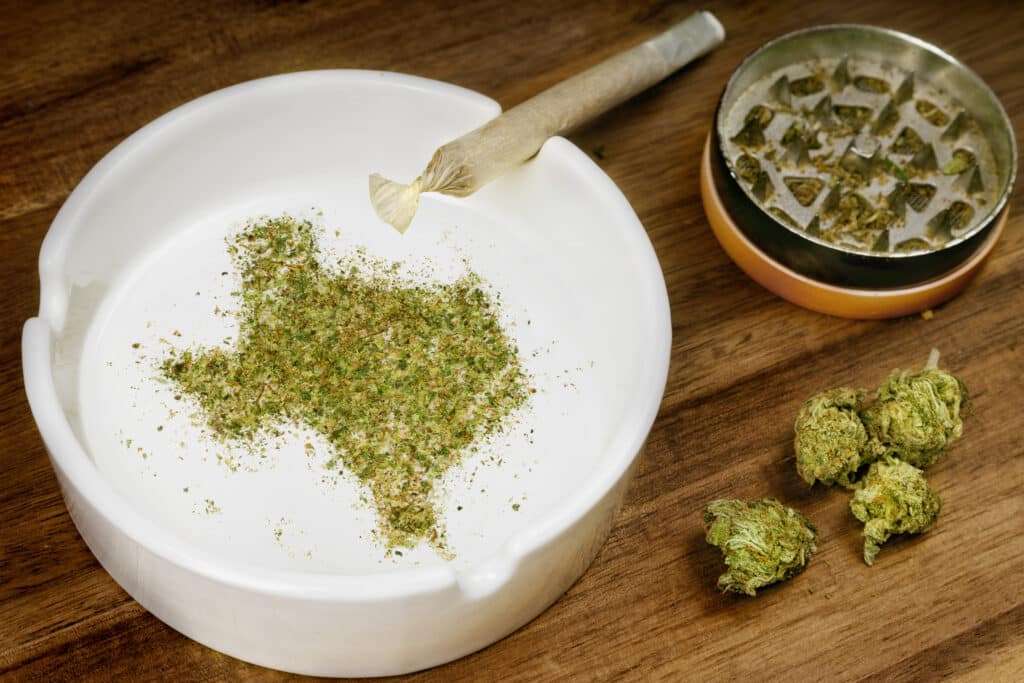Happy Cactus Owner Todd Harris Testifies at Texas House Hearings on Hemp
(Austin, TX) Todd Harris, co-owner of Austin, Texas-based The Happy Cactus Apothecary, testified in opposition to the anti-hemp bill Texas SB3. Harris spoke out against the bill during hearings conducted by the State Affairs Committee of the Texas House of Representatives on April 7, 2025.
Harris introduced his family-owned and legal hemp business to the committee. He explained in his testimony that:
- All customers must prove they are 21+, even if they are the Lieutenant Governor of Texas.
- Happy Cactus has passed each of four inspections by the Texas Department of Health Services during the past 18 months.
- The legal hemp industry in Texas is a much more effective program for Texans than the Texas Compassionate Use Program. (TCUP)
- Packaging is marketed to adults, not children. Look-alike products are not allowed.
- QR codes are available for customers to view test results and analysis.
- The local high school was informed by three letters that students are not allowed in the Happy Cactus.
A copy of Harris’ testimony is available below. It has been edited for clarity and space. The video of Harris’ testimony is available at: https://www.instagram.com/reel/DIMMlq5OJC0/?utm_source=ig_web_copy_link

Todd Harris
Good morning. Thank you all so much for volunteering your time to be here and listen to us. That’s an amazing thing, and we appreciate that. I do want to discuss a few points on why I am against SB3 and the three issues that I see with our current situation in Texas; I think we have at our shop (have a) slightly interesting perspective for three reasons. We have been inspected by DSHS (Texas Department of Health Services) four times in the last year and a half. The Lieutenant Governor Dan Patrick has visited our shop as well as we are across from a high school. If you have any questions about those, happy to answer; like I said, our shop has been inspected by DSHS four times in the last one and a half years, and we have passed with flying colors every time. I told the Lieutenant Governor this when he came into our shop, and he even said, it sounds like you guys are doing it right; we carded Dan Patrick.
We showed him we have our testing in (our) shop or via QR codes on each product we sell. We showed him we do not have packaging tailored towards children and showed him we don’t have any products over 25 milligrams per serving. So we were able to squash all the issues he has with the hemp industry all in one visit from just one of the amazing family-owned hemp business businesses here in Texas; Dan Patrick told me that he supports shops like ours that are doing it right. Feels very different from his attitude about it in the media.
One of the reasons we have been inspected so often is because TCUP (Texas Compassionate Use Program) did a piece with Texas Monthly last summer. This article called out eight shops in Texas, including ours, saying they tested our products and that we are selling illegal products. DSHS came to our shop the following week; we passed the inspection easily again. So why is TCUP trying to mess with businesses like ours? Probably because they know the hemp industry is a much more effective program for Texans than the Compassionate Use Program.
Additionally, the inspector, Mr. Chambers, told us that there are only eight inspectors in the entire state of Texas. How are eight people supposed to enforce the regulations already set in place, and why, especially with 8,000 shops, and he said he only goes to one shop or two, maybe a week. And why are they visiting our shop so often when we have shown we are in compliance?
State Representative John McQueeney asks a question
You said that your products had no more than 25 milligrams per serving indeed. How does that correlate to this .03 that we that is in the regulations?
Todd Harris
The 0.3%?
State Representative John McQueeney
Yes.
Todd Harris
The 0.3% is per dry weight. So, with an edible, you just have to make sure the edible is heavy enough or big enough that you can fit 25 milligrams in there and still be under 0.3% per dry weight. It’s actually very easy to do. They’re actually are very close to that already in Colorado, and California. We use Vegan gummies that are a little heavier.
State Representative John McQueeney
Is that an intoxicating dose, or is that I’ve got PTSD, and it’s gonna make me calm down?
Todd Harris
So I think intoxicating is objective.
State Representative John McQueeney
Is it comparable to having a couple beers?
Todd Harris
Me and my wife take around 50 milligrams every time and or when we need to just have relief. For some people, 25 milligrams can just be relief. And for some people, it’s, you know, they can’t even feel it.
State Representative John McQueeney
There are some people that would get a euphoric feeling from that dosage, and some people that would not. Is what you’re saying?
Todd Harris
I agree.
State Representative John McQueeney
Yeah. Thank you
Todd Harris
Thank you, Mr. Chairman, and I want to mention, so I passed out a letter that we actually sent to the high school that we’re across from, letting them know that it’s trespassing for their students to enter our shop as well. And we sent that six months ago. We sent them three letters, and we actually have a meeting with the principal now, and that is something we’ve done before he even mentioned SB3. It’s something we’ve been doing for four years, keeping carding everyone in our shop.
For media interviews with Todd and Mickey Harris, Happy Cactus Owners, please contact Kevin Lampe at (312) 617-7280 or kevin@kurthlampe.com.
-30-














































